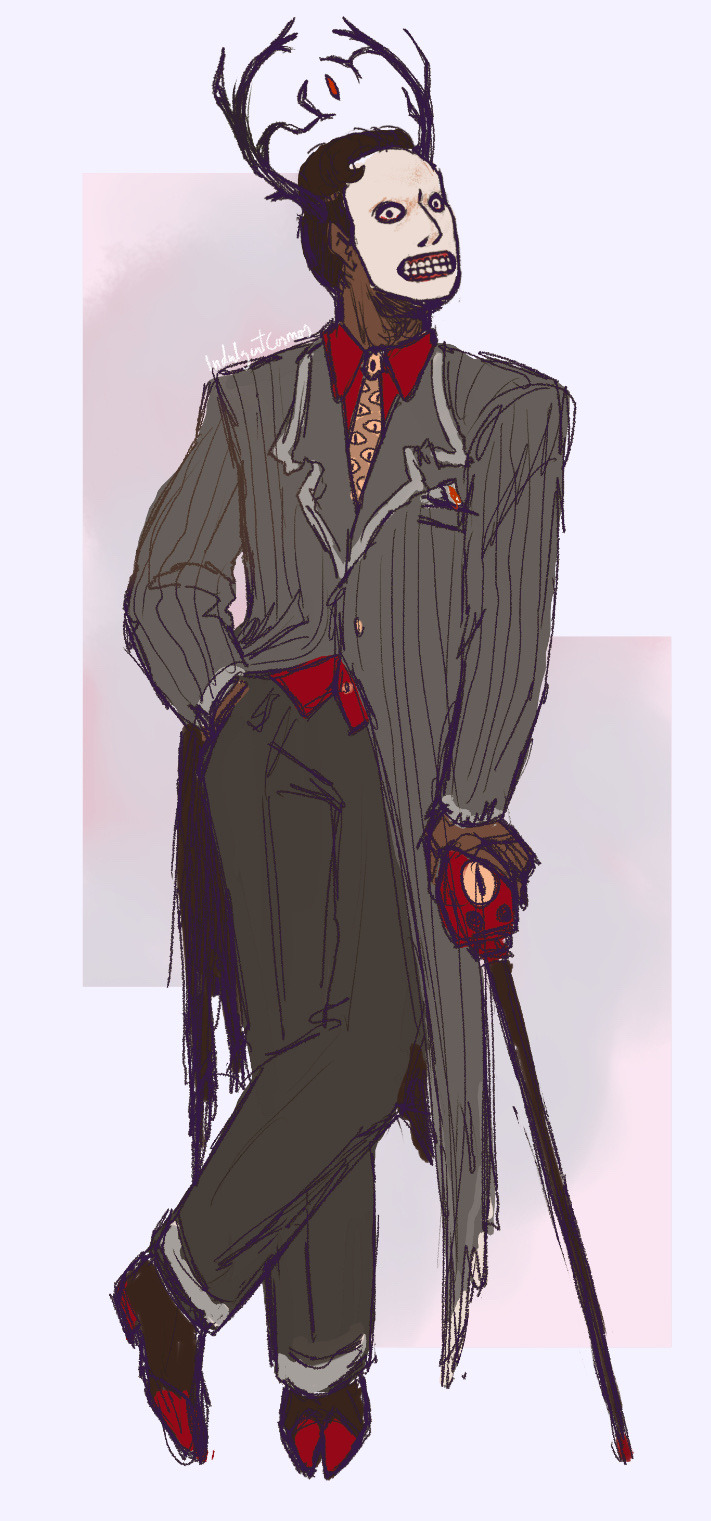#the mask’s purpose is to depersonalise him
Text

#quick little reimagining of Alastor in my style cause he’s our fav aroace icon#I have not seen the show lmao#the mask’s purpose is to depersonalise him#cause anyone can be a serial killer#and it takes the most important part of him away#a murderer is nothing without his identity and ‘glory’#and he’s forced to hold that expression for all eternity#is it a smile? is it a grimace? who knows#Alastor#hazbin hotel#alastor redesign#it’s not the most creative of designs but it is what it is
60 notes
·
View notes
Text
Ontological Balance in Social Networks
In the recent Congressional hearings, Mark Zuckerberg has referred to Facebook as a community, a company, a platform for business and a network, basing this characterisation on the nature of the questions posed to him. While Facebook may be all of those things, it exposes Facebook as a hyperobject onto which various cultural imaginations are cast.
A social media profile is an object in a network of other objects. When I send you a friend request on Facebook, I am not requesting to become your friend; my Facebook profile is sending your Facebook profile a friend request at my behest. I may not be your friend in real life and we may not be a part of the same community but we may comprise the same community (as Mark put it).
The object reality of a social media profile is least discernible on Facebook since Facebook frames itself in language that masks the gap between the real and the virtual. Our real selves are made to appear as having a virtual image on Facebook that correlates approximately. It is this correlation that encourages statements such as “If Facebook was a country, it would be the third largest in the world.”
On networks such as Twitter, Instagram and Reddit, there is less authentication in setting up new profiles. These networks allow users to have (ie. operate) multiple profiles on their networks simultaneously. As a result, these networks cannot force the affect of Facebook (overlapping real and virtual selves). They allow for profiles to be expressions, or fictions if so desired and unconsciously acknowledge this.
On Twitter profiles, bio sections often feature phrases like “Re-tweets are not endorsements” or “reflects the views of the user”, which are evidence of the divergence between the behaviour (actions) of the real self and the actions of the profile-object. A re-tweet that is not an endorsement of an opinion is an action that a user has made the profile-object execute that the user would not execute in real life or prefer not to be seen as doing in real-life. In this scenario, the profile-object is not a proxy for the person; the action is a performance by the person on the stage of the social network. The profile acts complicit as an object controlled by the user inside the virtual space of the social network.
The Congressional hearings were premised on the widespread practice of a belief that Facebook user data is an authentic record of user activity since the data that Facebook collects and facilitates is rooted in the real life of the user. Scrolling through one’s Facebook feed is a curated glimpse into the offline and online lives of users. In this way, Facebook does not encourage an original virtual culture but offers a digital mirror to real lives of its users.
On Facebook, the reality of social networking is considered proxy for real interactions between users (people). However, profiles interact inside the network differently from how people interact in real life and it is these differences that give social networks their purpose, and by extension their power.
For example, it is not easy to block a person from one’s life, nor is it socially appropriate for casual acquaintances to poke each other. We can like certain things without the fact of this liking being explicitly visible to others, and so much of what we convey to each other in real life is culturally implicit. On Facebook, there are no hugs but there are waves.
Moving away from ascribing one’s profile with the burden of representation can help depersonalise the data that such profiles generate. In this play, data privacy need not be a deeply personal consideration. It can allow for a more liberated exploration of possible modes of socialisation, not limited by the controls and interfaces that the social network as a product offers.
Networks such as Reddit where anonymity is an explicit norm, have developed rich, indigenous cultures that are more rooted than those of Facebook. Reddit encourages peer regulation (and hence self-regulation) though individual users are already protected to a great extent by their anonymity. In doing so, Reddit avoids the trap of reflecting real life interactions exactly and seriously explores the novel possibilities of socialising, learning and cultural exchange.
Reddit and Twitter culture are home to experimental or business bots (AI) as well. On these networks, bots are not discriminated against explicitly and can be seen or interacted with through network channels just as with human-operated profiles. In contrast, Facebook is rife with discrimination against non-human operators. The bot users of Facebook are seen as failures that compromise the value of their data.
So far, humans have been the primary users of social networks and the master-slave dynamic between the profile-object and the user-operator has heavily favoured the user as master (anthropocentric). However, with bots and internet of things, this bias may shift into exciting new paradigms.
Questions:
Can we imagine a future in which the dynamic shifts towards profile as master?
Can we learn to play nice with non-humans online? We already deal with abstract (inhuman but anthropomorphised) entities such as corporations with a degree of comfort.
Can we learn to distinguish between our online selves and our offline selves more distinctly?
What happens when the performance of identity is made explicit? Will publicity still work?
0 notes